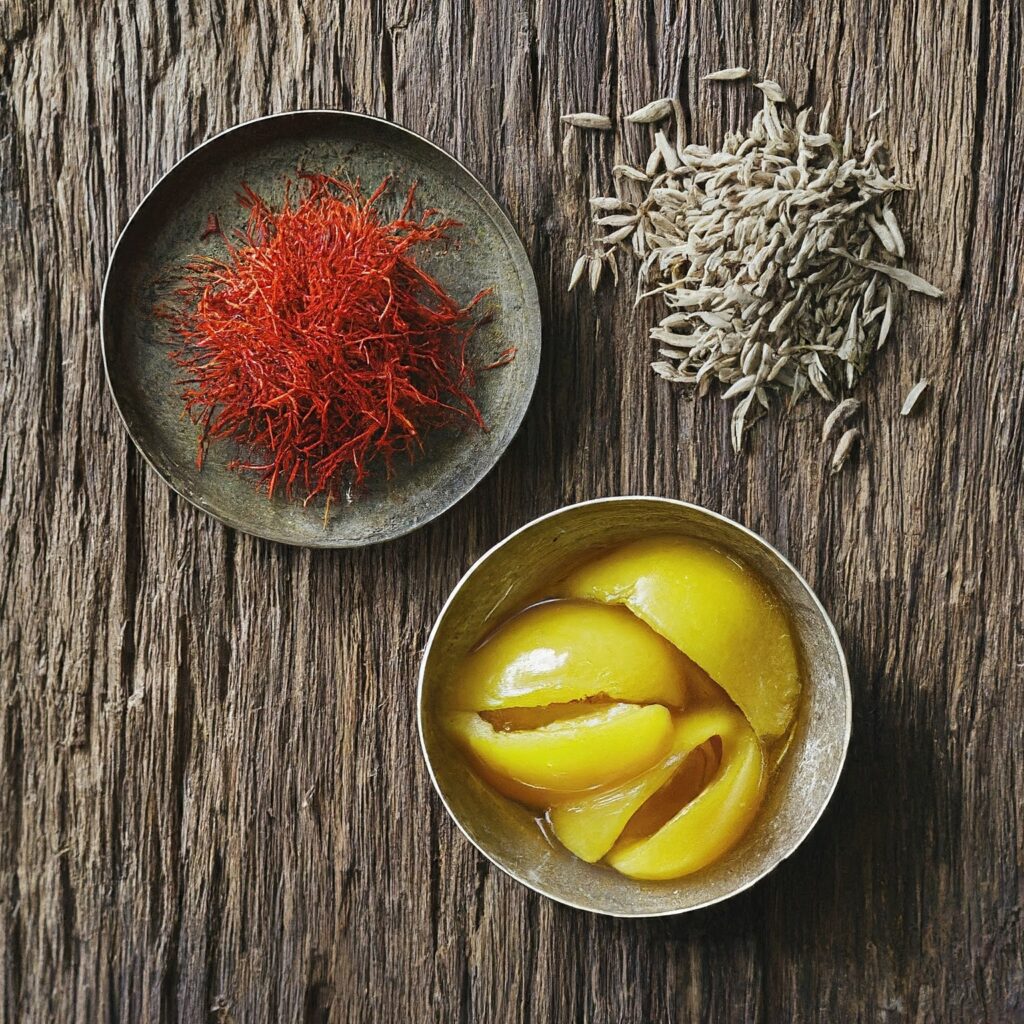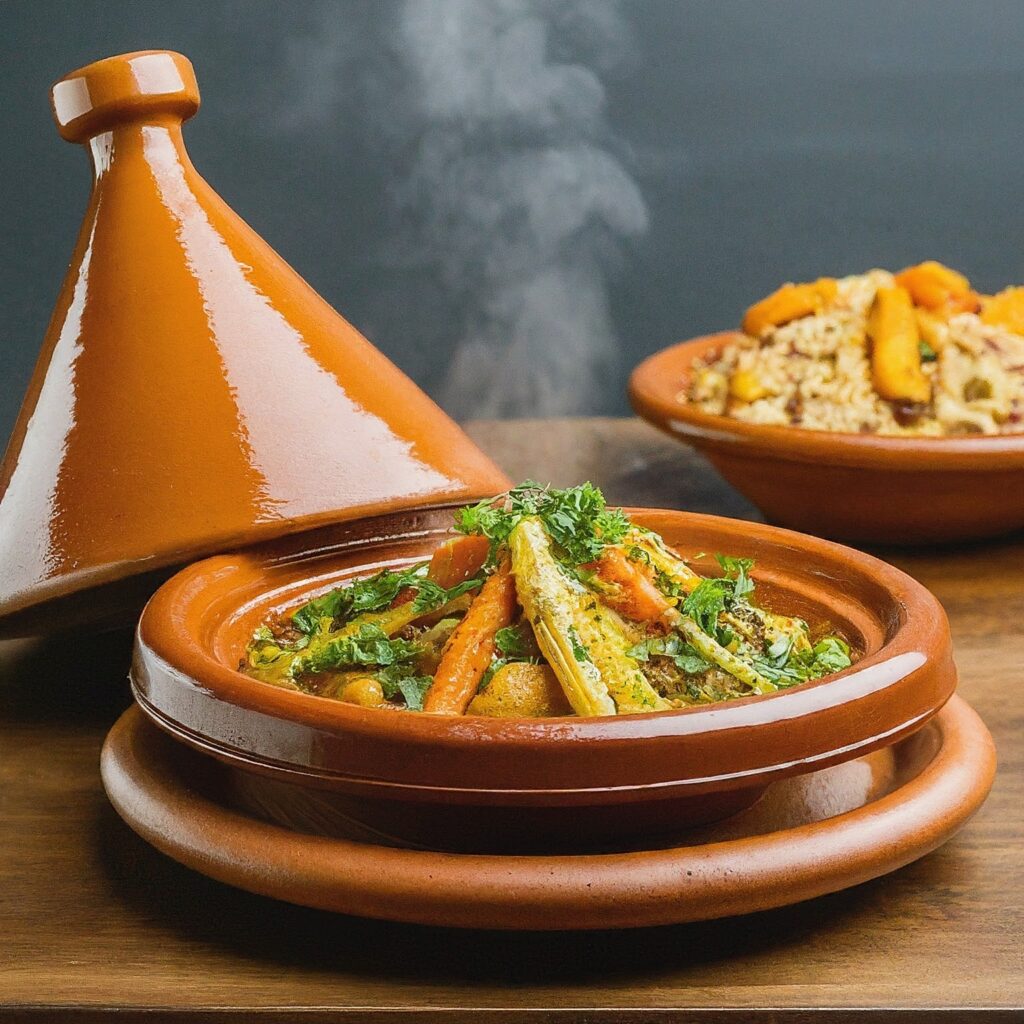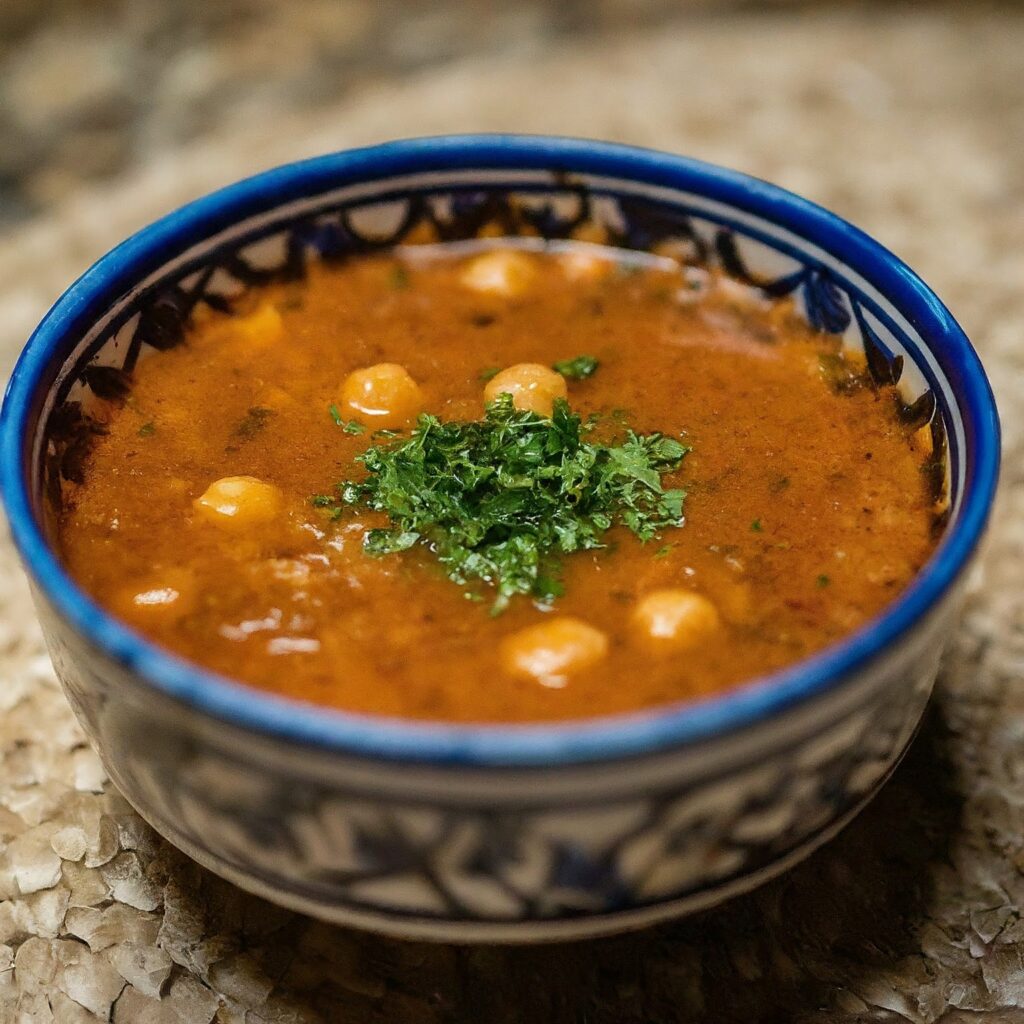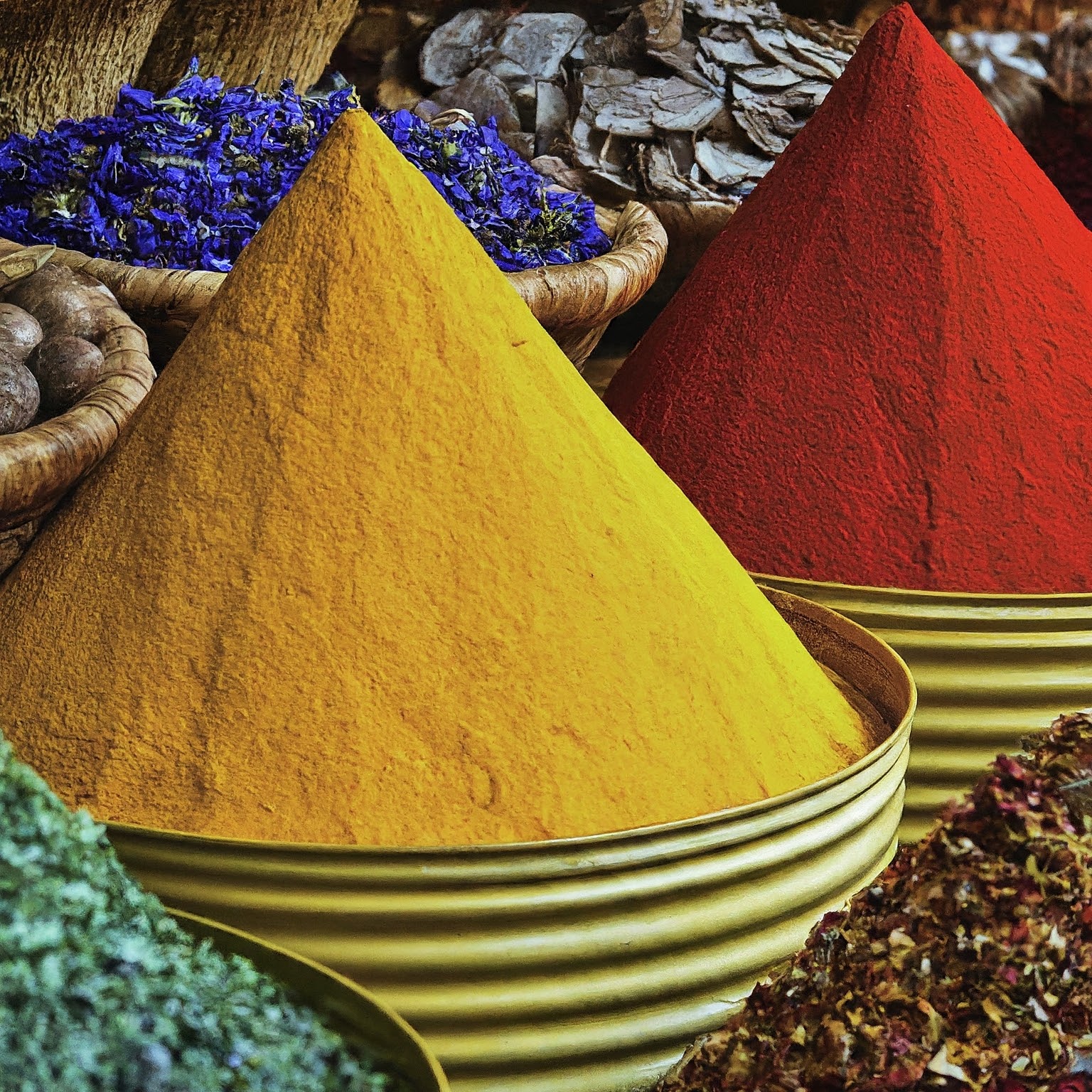Introduction to Moroccan Cuisine
Moroccan cuisine is a vibrant fusion of Berber, Arabic, Andalusian, and Mediterranean influences. Known for its rich flavors and aromatic spices, Moroccan food is a delightful exploration of taste and tradition. The cuisine is characterized by its use of fresh ingredients, bold spices, and slow-cooked dishes that develop complex flavors over time.

Key Spices and Ingredients
- Saffron: Often referred to as “red gold,” saffron adds a subtle yet distinct flavor and vibrant color to many Moroccan dishes.
- Cumin: A staple in Moroccan cooking, cumin provides a warm, earthy flavor that enhances both meat and vegetable dishes.
- Preserved Lemons: These add a tangy, salty flavor to dishes and are a key ingredient in many tagines.
- Cinnamon: Used in both sweet and savory dishes, cinnamon adds a warm and sweet aroma.
- Ras el Hanout: A complex spice blend that can contain up to 30 different spices, including cardamom, nutmeg, and ginger.
- Harissa: A spicy chili paste that adds heat and depth to many dishes.
Popular Moroccan Dishes
- Tagine: A slow-cooked stew named after the earthenware pot it is cooked in. Common ingredients include chicken, lamb, vegetables, and a mix of spices and dried fruits.

- Couscous: Often served as a side dish or base for stews, couscous is steamed semolina grains, typically paired with vegetables, meat, and a rich broth.
- Harira: A hearty soup made with tomatoes, lentils, chickpeas, and a blend of spices. It is often served during Ramadan to break the fast.

- Pastilla: A sweet and savory pie made with layers of thin pastry, filled with spiced meat (often pigeon or chicken), almonds, and cinnamon.
- Zaalouk: A smoky, spiced eggplant and tomato dip, often served with bread.
Cooking Tips for Moroccan Recipes at Home
- Invest in a Tagine: While not essential, a tagine pot helps achieve the authentic slow-cooked texture and flavor of Moroccan stews.
- Use Fresh Spices: Freshly ground spices will provide the best flavor. Consider buying whole spices and grinding them yourself.
- Marinate Well: Many Moroccan dishes benefit from marinating meat or vegetables in spices overnight to enhance the flavors.
- Balance Flavors: Moroccan cuisine often balances sweet and savory flavors. Don’t be afraid to add dried fruits or honey to your savory dishes.
- Cook Low and Slow: Patience is key. Slow cooking allows the spices to meld together and develop a rich, deep flavor.
Cultural Significance of Moroccan Food
Moroccan cuisine is more than just food; it’s a cultural experience. Meals are often communal, with dishes shared from large, central platters. Hospitality is a key component of Moroccan culture, and guests are often treated to elaborate meals. Traditional Moroccan dining involves eating with the right hand, using pieces of bread to scoop up food, and sharing stories and laughter around the table.
